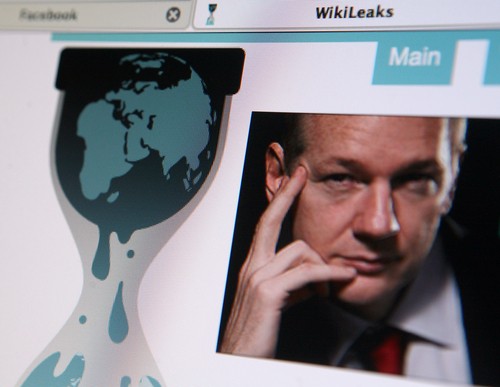Assange's number two out on lack of democracy
 One of Australia’s youngest political parties has lost an important component, with the party’s second-placed member on the ticket quitting Wikileaks.
One of Australia’s youngest political parties has lost an important component, with the party’s second-placed member on the ticket quitting Wikileaks.
Party member Leslie Cannold has left WikiLeaks over what she calls a lack of transparency, accountability and democratic process. The author and ethicist would have taken Julian Assange’s seat in the senate if he had won but had been unable to return to Australia.
Assange says it is not a big loss, but he will likely begin to question his party’s direction now that the fourth delegate of the group’s national council has left.
Cannold’s resignation is reportedly the result of recent controversy over the WikiLeaks party’s preference allocations. First preferences were given to far-right wing parties over some of WikiLeaks’ and Assange's main supporters, including the Greens.
Mr Assange said he was sorry to see Ms Cannold go, and that he took some responsibility for the party’s mismanagement.
“I made a decision two months ago to spend a lot of my time on dealing with the Edward Snowden asylum situation and trying to save the life of a young man [Bradley Manning]. Now, the result is over-delegation, so I admit and I accept full responsibility for over-delegating functions to the Australian party while I tried to take care of those situations... it's not easy obviously being a party leader at a distance with a nine-hour time delay,” he said.
A joint statement has been released by several who have jumped from the WikiLeaks ship, including Dr Daniel Mathews and fellow national council members Sam Castro, Kaz Cochrane and Luke Pearson, along with volunteers Sean Bedlam and David Haidon. The former party members also raised concerns about WikiLeaks’ transparency and accountability.
“Where a national council member begins openly subverting the party's own processes, and asking others to join in a secret, alternative power centre that subverts the properly constituted one, this is not an acceptable mode of operation for any organisation but even more so for an organisation explicitly committed to democracy, transparency and accountability,” the statement read.







 Print
Print